The covid-19 epidemic has shed concern over the world’s health and economy. The impact of the epidemic on e-commerce remains however unclear.
How did the covid-19 impact the Chinese e-commerce sector, and what trend can we expect in the coming weeks?
Fashion sales slump, cosmetics, and F&B remain strong
As most of the population in China went into voluntary quarantine, sales of fashion and apparel predictably went down.
Even fashion basics such as UNIQLO experienced their lowest selling month in the past year.
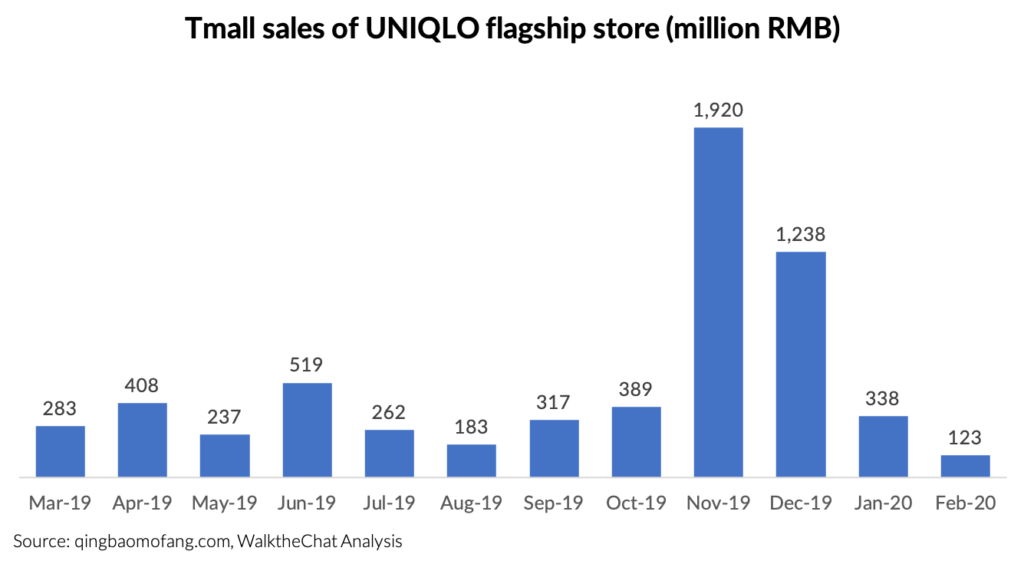
Sportwear brands such as Nike also saw a significant drop in sales, as gyms were closed and people unable to work out.
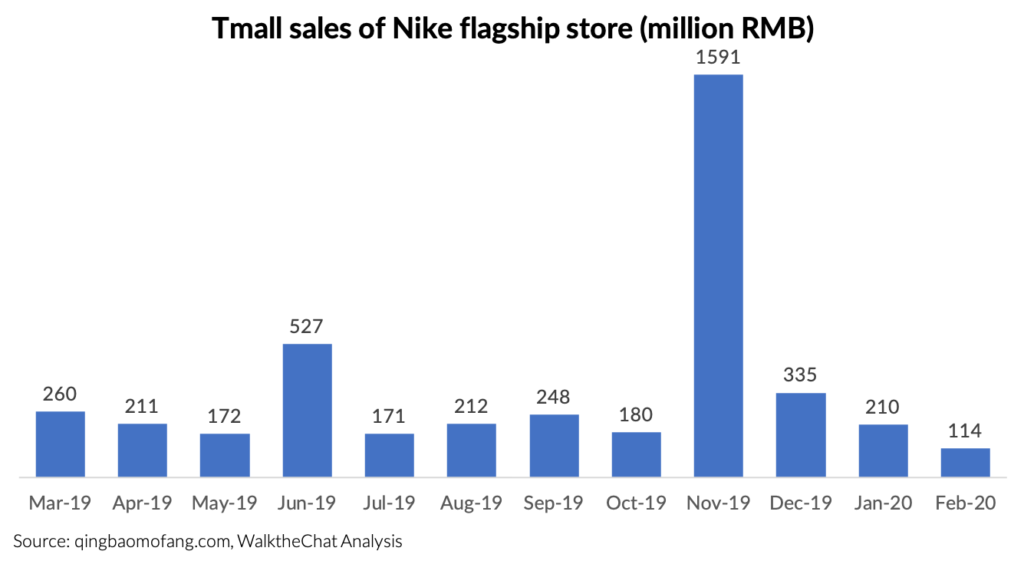
Fashion was, however, the exception more than the rule. Other sectors of the Chinese E-commerce landscape remained extremely strong through the crisis.
The Chinese cosmetics brand Perfect Diary, a heavily online-focused brand, maintained steady sales through both January and February.
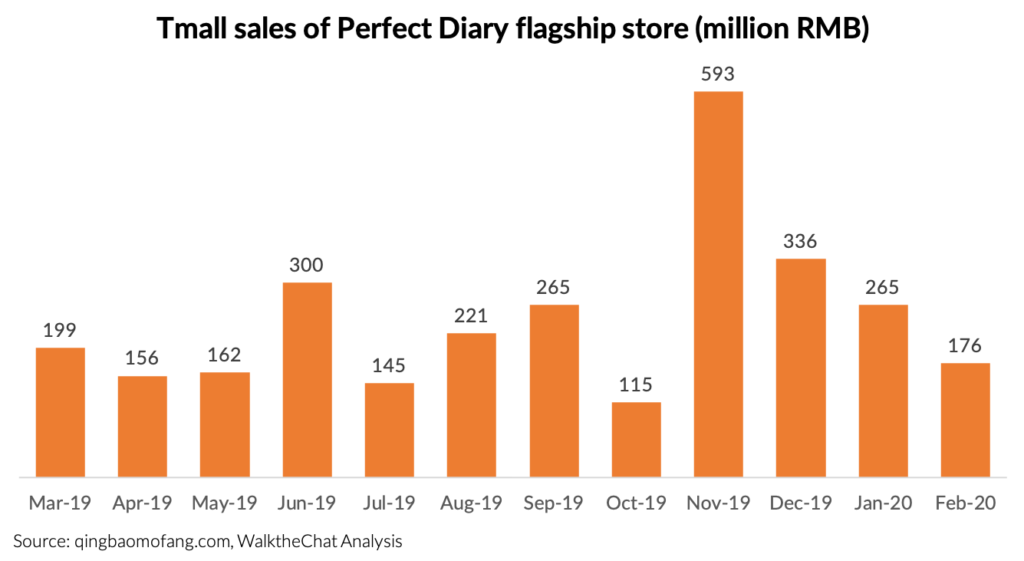
The drop from November is explained by the seasonality of Chinese sales during Single’s Day and Double 12. However, sales during January 2020 and February 2020 were on the rise compared to early 2019.
More traditional cosmetic brands such as Lancôme also performed well through the crisis. Lancôme sales during January and February 2020 were on-par or above sales during non-promotional months of 2019.
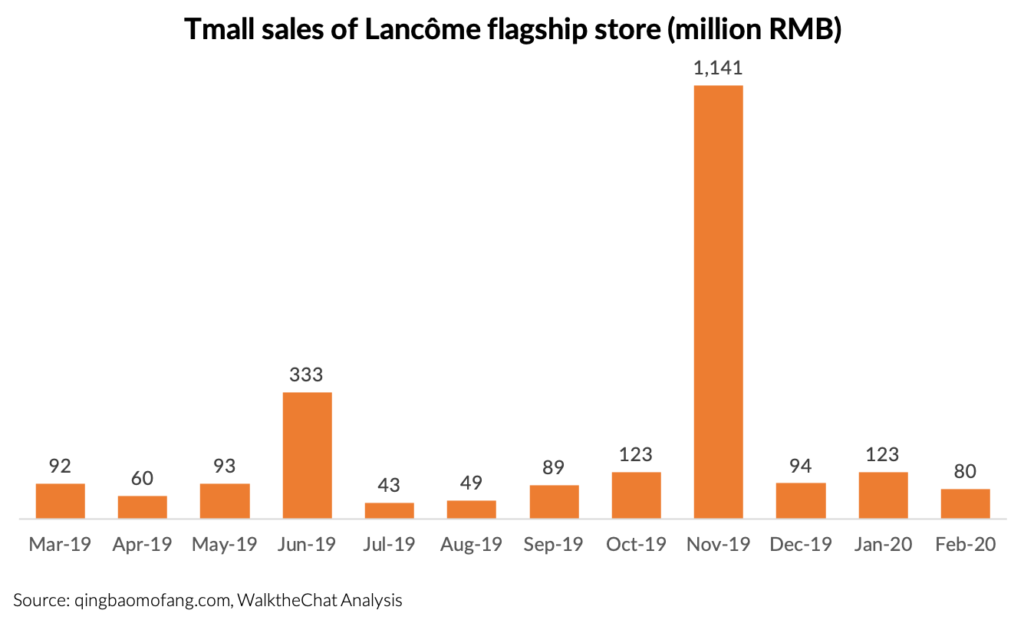
Predictably, F&B companies performed best. The leading F&B company on Tmall, Three Squirrels, performed even better during January 2020 than it did during last year’s Single’s Day. During this pandemic, people consume and store snacks as part of ways to deal with stress.
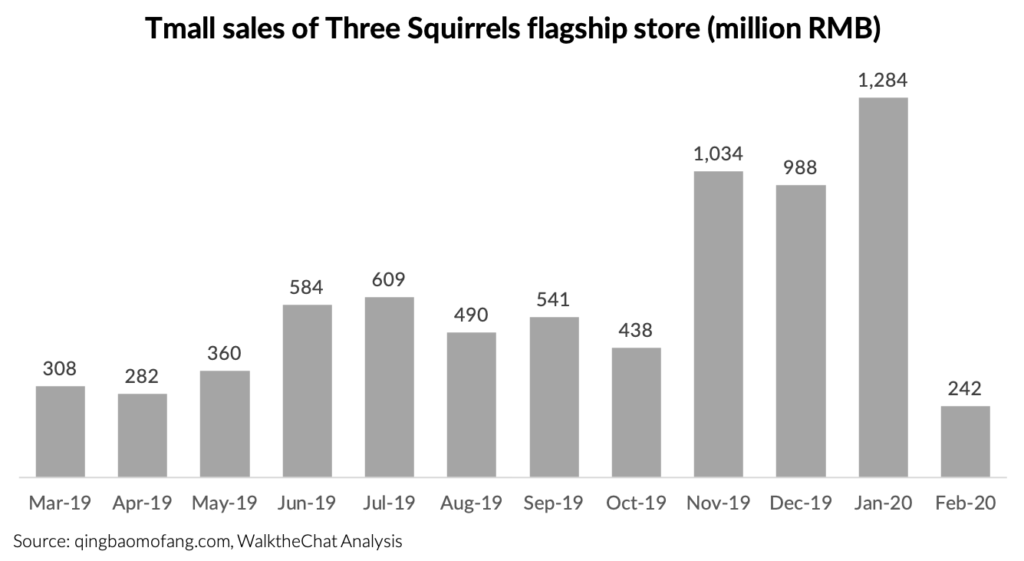
All sectors are expected to bounce back
There has been a notable shift in perspective over the last few weeks in China. Consumers are more hopeful, and clearly indicated a growing willingness for leisure spending since the second half of February.
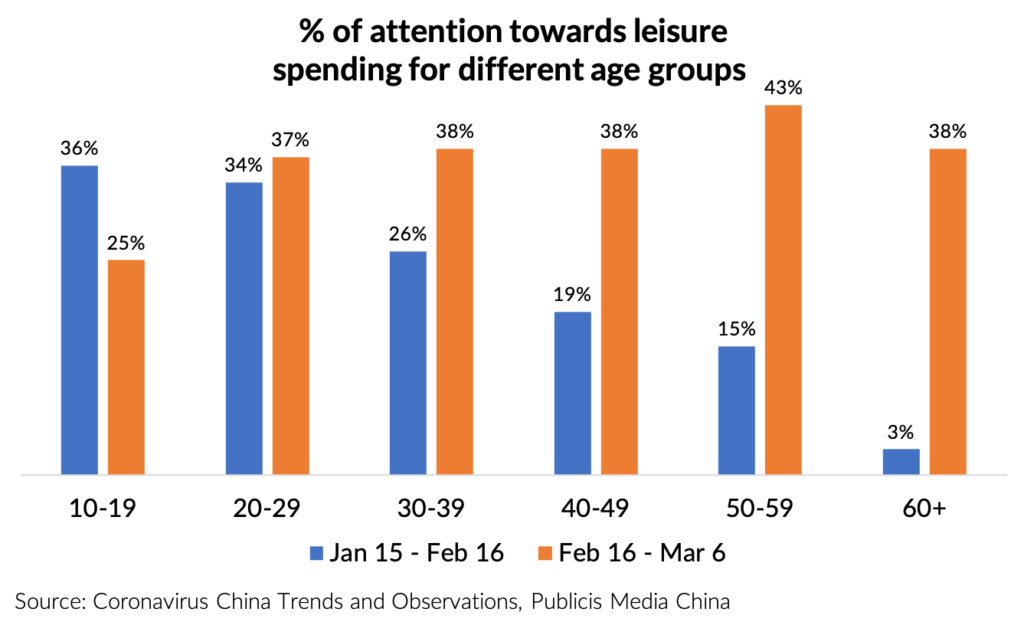
Brands have seen a clear uptake of sales during March, with an amazing performance of Alibaba during March 8th shopping festival.
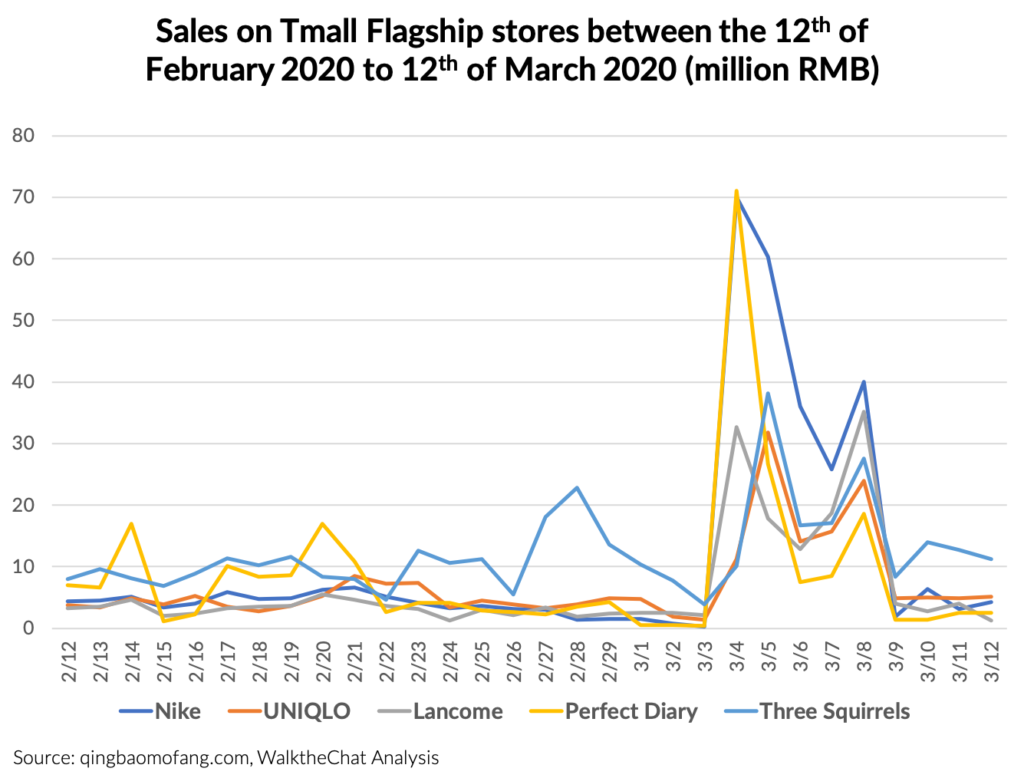
Actually, most brands surveyed seem to be overperforming compared to last year: Chinese e-commerce is still going extremely strong.
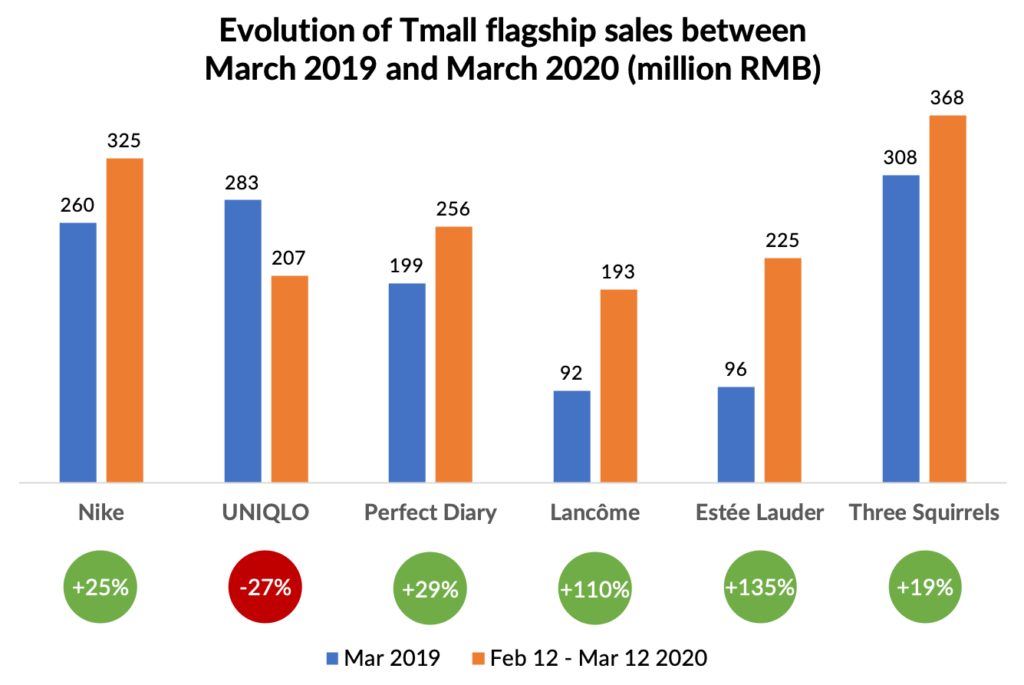
More traditional brands such as Lancôme and Estée Lauder boomed, with YOY growth over 100%. This trend can be explained by the fact that a lot of their offline sales shifted to Tmall.
Online-focused players such as Perfect Diary and Three Squirrels saw a more moderate impact, as they didn’t experience this migration of sales from offline to online.
The growth of Nike can be explained by the fact that customers’ interest has been shifting back toward Sports & Fitness, away from Medicine & Healthcare at the height of the epidemic.
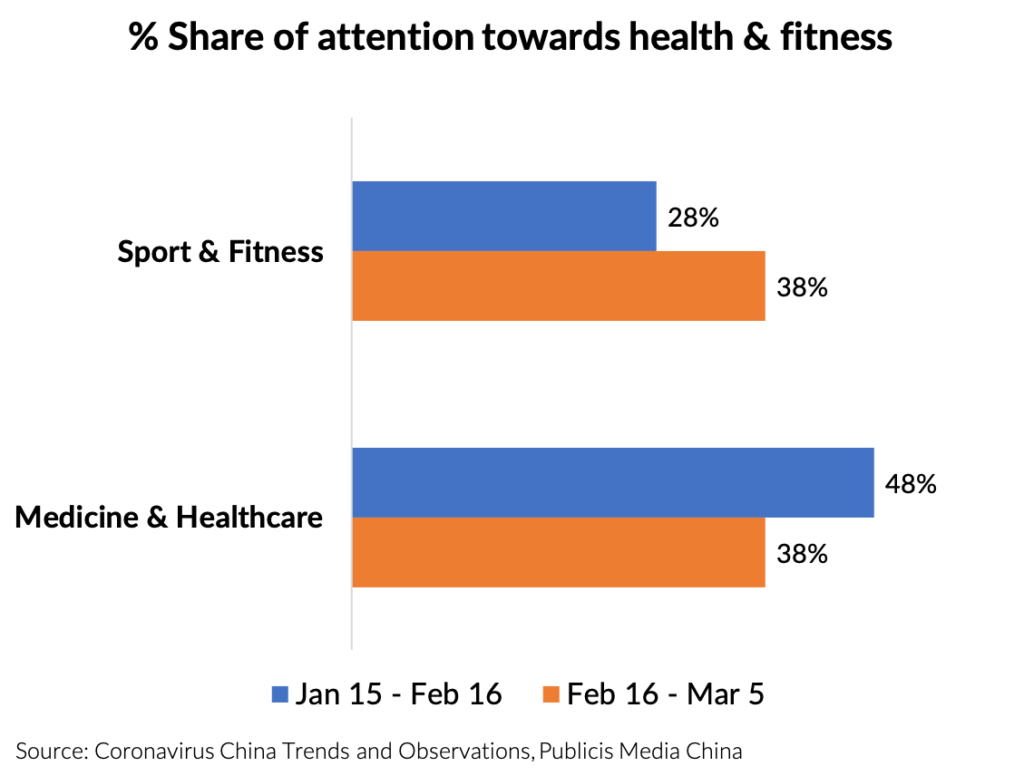
This boom of online is even more remarkable as brands were very careful about promoting during the coronavirus period. Many brands were afraid to be perceived as taking advantage of the epidemic. Marketing budgets of brands dropped by 11.5% YOY.
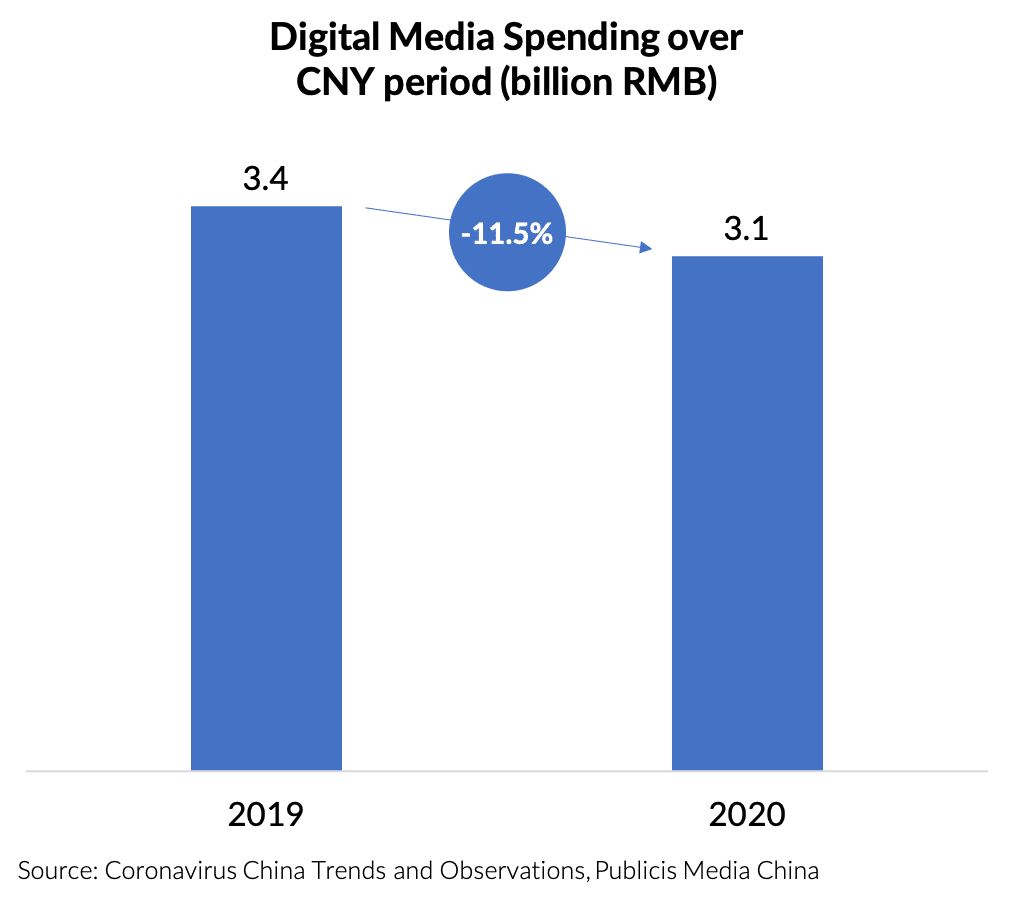
IKEA opened up Tmall flagship store
The outbreak also forced offline players to digitize.
After operating in China for 21 years, IKEA finally decided to launch a Tmall flagship store last week. Within only 5 days, it already got 874k Tmall followers. The 15 top-selling products already generated 408k RMB of sales.

IKEA has been extremely conservative in launching any e-commerce stores, mainly to protect its retail business. The epidemic forced most IKEA stores in China to close for around 2 months. IKEA was pushed to adapt to the e-commerce approach that could bring tremendous opportunity going forward.
Conclusion
The world’s economy is undoubtedly being affected by the Covid-19 epidemic. Chinese e-commerce ecosystem seems to be one sector that has held strong and even been booming despite the crisis.
Some sectors such as fashion were initially affected even online. However, as the epidemic is being controlled locally, and people start to be more optimistic about the future, even these hard-hit sectors seem now to recover.
The outbreak seems to have pushed even the more traditional brands to move online, and Chinese society will have taken another step toward digitization by the end of it.

